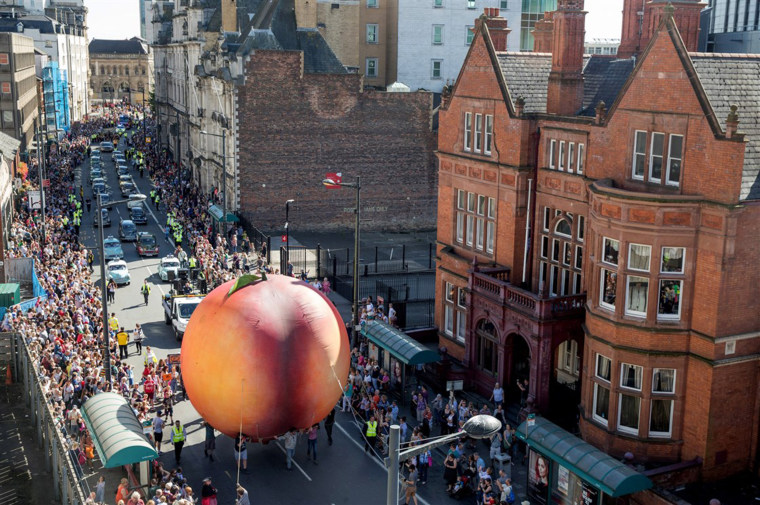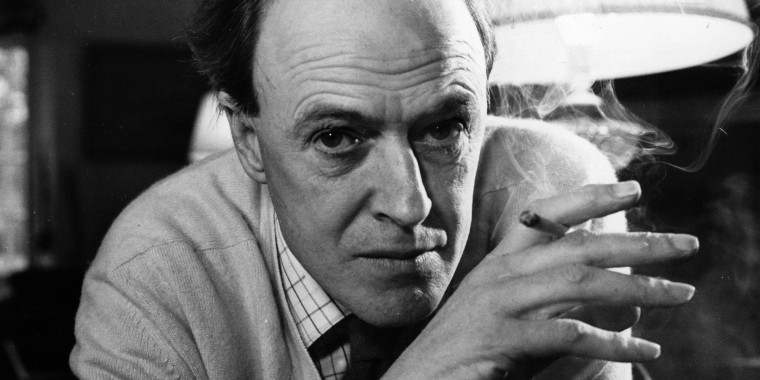Generations of children couldn't imagine their upbringing without tales of Willy Wonka’s golden ticket or lessons learned from the Big Friendly Giant.
But the spotlight is now being shined on a less-known element of the beloved late author's life after his family recently apologized for his anti-Semitic remarks. An undated post on Dahl's website said the family "deeply apologize for the lasting and understandable hurt" caused.
"Those prejudiced remarks are incomprehensible to us and stand in marked contrast to the man we knew and to the values at the heart of Roald Dahl's stories, which have positively impacted young people for generations,” the statement said.
“We hope that, just as he did at his best, at his absolute worst, Roald Dahl can help remind us of the lasting impact of words.”
Considered “one of the world’s most imaginative, successful and loved storytellers,” Roald Dahl’s work has increased in popularity since his death according to his official website.
The British "Matilda" author — whose books have been transformed into movies and stage plays — died in 1990 at the age 74.
Although Dahl’s declarations were public knowledge, they have not been acknowledged by his family until now. In a 1990 New York Times Letter to the Editor titled, "Roald Dahl Also Left a Legacy of Bigotry," the former National Director of the Anti-Defamation League, Abraham H. Foxman, brought attention to the issue.
“Your obituary on the British writer Roald Dahl omits an important aspect of the subject's life. Mr. Dahl... had his own dark and unexpected side: he was a blatant and admitted anti-Semite.”
Foxman goes on to mention an 1983 interview with British political magazine The New Statesman, also reported in The Sunday Times, where Dahl said: “There is a trait in the Jewish character that does provoke animosity, maybe it’s a kind of lack of generosity towards non-Jews.”

“Even a stinker like Hitler didn’t just pick on them for no reason,” Dahl said.
Later in 1990, the year he died, Dahl told The Independent: “I’m certainly anti-Israeli and I’ve become anti-Semitic in as much as that you get a Jewish person in another country like England strongly supporting Zionism.”
In a statement to The Sunday Times, the Roald Dahl Story Company further acknowledged and apologized for the remarks.
The apology comes at a time of political and cultural reckoning against anti-Semitism across Britain, after the U.K.’s Labour Party suspended its former leader Jeremy Corbyn after a report detailed serious failings in the party's handling of anti-Semitism complaints under his leadership.
This article was originally published on NBCNews.com.
